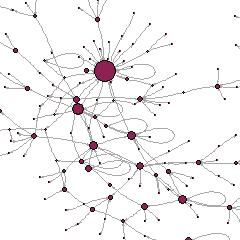I am glad to announce the publication of a new article in a special issue of the journal Sociologia del lavoro, dedicated to digital labour.
Today’s artificial intelligence, largely based on data-intensive machine learning algorithms, relies heavily on the digital labour of invisibilized and precarized humans-in-the-loop who perform multiple functions of data preparation, verification of results, and even impersonation when algorithms fail. This form of work contributes to the erosion of the salary institution in multiple ways. One is commodification of labour, with very little shielding from market fluctuations via regulative institutions, exclusion from organizational resources through outsourcing, and transfer of social reproduction costs to local communities to reduce work-related risks. Another is heteromation, the extraction of economic value from low-cost labour in computer-mediated networks, as a new logic of capital accumulation. Heteromation occurs as platforms’ technical infrastructures handle worker management problems as if they were computational problems, thereby concealing the employment nature of the relationship, and ultimately disguising human presence. My just-published paper highlights a third channel through which the salary institution is threatened, namely misrecognition of micro-workers’ skills, competencies and learning. Broadly speaking, salary can be seen as the framework within which the employment relationship is negotiated and resources are allocated, balancing the claims of workers and employers. In general, the most basic claims revolve around skill, and in today’s ‘society of performance’ where value is increasingly extracted from intangible resources and competencies, unskilled workers are substitutable and therefore highly vulnerable. In human-in-the-loop data annotation, tight breakdown of tasks, algorithmic control, and arm’s-length transactions obfuscate the competence of workers and discursively undermine their deservingness, shifting power away from them and voiding the equilibrating role of the salary institution.
Following Honneth, I define misrecognition as the attitudes and practices that result in people not receiving due acknowledgement for their value and contribution to society, in this case in terms of their education, skills, and skill development. Platform organization construes work as having little value, and creates disincentives for micro-workers to engage in more complex tasks, weakening their status and their capacity to be perceived as competent. Misrecognition is endemic in these settings and undermines workers’ potential for self-realization, negotiation and professional development.
My argument is based on original empirical data from a mixed-method survey of human-in-the-loop workers in two previously under-researched settings, namely Spain and Spanish-speaking Latin America.
An openly accessible version of the paper is available from the HAL repository.

